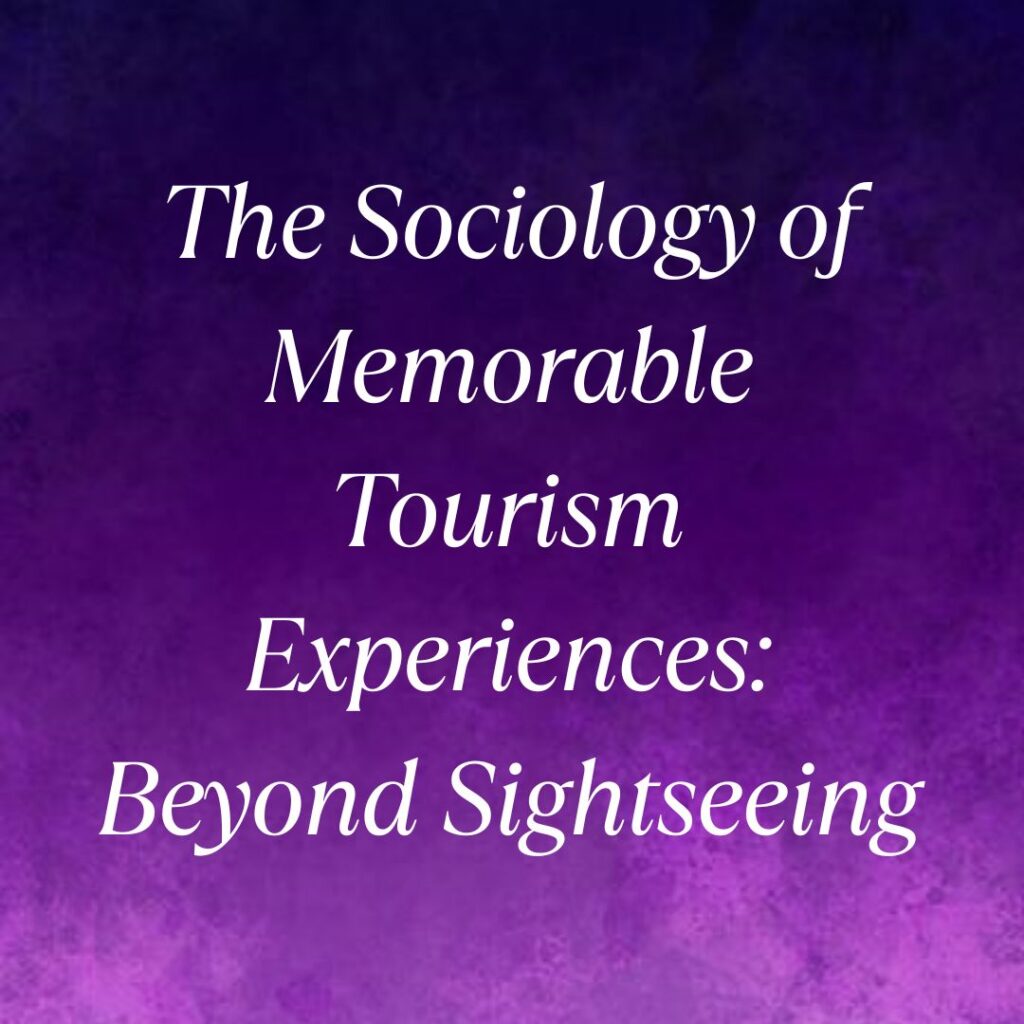Tourism is more than just visiting landmarks and taking photos; it’s about creating lasting memories and experiencing different cultures. In sociology, the study of tourism goes beyond the superficial to explore how these experiences shape individuals and societies. This article delves into the sociology of memorable tourism experiences, highlighting their social dynamics, cultural impacts, and relevance in today’s interconnected world.
Understanding Memorable Tourism Experiences
Memorable tourism experiences are those that leave a profound impact on travelers, often transcending mere sightseeing. They can include interactions with locals, participation in cultural events, and moments of personal discovery. Unlike conventional tourism, which focuses on attractions, memorable experiences are deeply personal and often involve meaningful connections.
Social Dynamics of Tourism
Tourism inherently involves social interactions—between tourists, locals, and even other travelers. These interactions create social networks and influence cultural perceptions. For instance, a traveler participating in a local festival not only observes but actively engages with cultural practices, fostering cross-cultural understanding and empathy.
Cultural Impacts
Tourism acts as a bridge between cultures, facilitating the exchange of ideas, values, and traditions. A tourist learning about indigenous practices or culinary traditions not only enriches their own experience but also contributes to cultural preservation and appreciation. In today’s globalized society, these exchanges are crucial for promoting cultural diversity and understanding.
Economic and Environmental Factors
The sociology of tourism also considers its economic and environmental dimensions. Tourism can drive local economies through job creation and infrastructure development. However, it also poses challenges such as environmental degradation and cultural commodification. Sustainable tourism practices aim to mitigate these impacts while maximizing the benefits for local communities.
Case Studies and Examples
To illustrate these concepts, let’s explore a few case studies:
Case Study 1: Homestay Experiences in Rural Communities
In many rural areas, homestays have become popular among travelers seeking authentic cultural immersion. For example, initiatives in countries like India and Thailand encourage tourists to stay with local families, participate in daily activities, and learn about traditional crafts. These experiences not only provide economic opportunities for rural communities but also promote cultural exchange and mutual understanding.
Case Study 2: Volunteer Tourism in Developing Nations
Volunteer tourism, or “voluntourism,” involves travelers contributing their time and skills to community projects in developing countries. Organizations offer opportunities ranging from teaching English to conservation efforts. Such experiences not only benefit local communities by addressing social needs but also challenge volunteers to reflect on global inequalities and social justice issues.
Case Study 3: Cultural Festivals and Events
Cultural festivals and events attract tourists by showcasing local traditions and artistic expressions. For instance, events like the Carnival in Rio de Janeiro or Diwali in India not only draw millions of tourists but also serve as platforms for cultural pride and identity. These celebrations highlight the role of tourism in preserving intangible cultural heritage and promoting cultural tourism.
Relevance to Current Times
In today’s interconnected world, tourism plays a pivotal role in fostering global citizenship and intercultural dialogue. The COVID-19 pandemic has reshaped tourism dynamics, emphasizing safety, sustainability, and resilience. Virtual tourism experiences have emerged as alternatives, offering immersive digital journeys that bridge geographical divides and promote cultural exchange.
Conclusion
The sociology of memorable tourism experiences underscores the transformative power of travel beyond sightseeing. By examining social dynamics, cultural impacts, and real-life examples, we appreciate tourism’s role in shaping identities, promoting cultural diversity, and fostering global understanding. As travelers seek meaningful connections and authentic experiences, the sociology of tourism continues to evolve, highlighting its significance in a rapidly changing world.
Through meaningful interactions and cultural exchanges, tourism becomes not just a journey but a pathway to mutual respect, empathy, and global citizenship.






